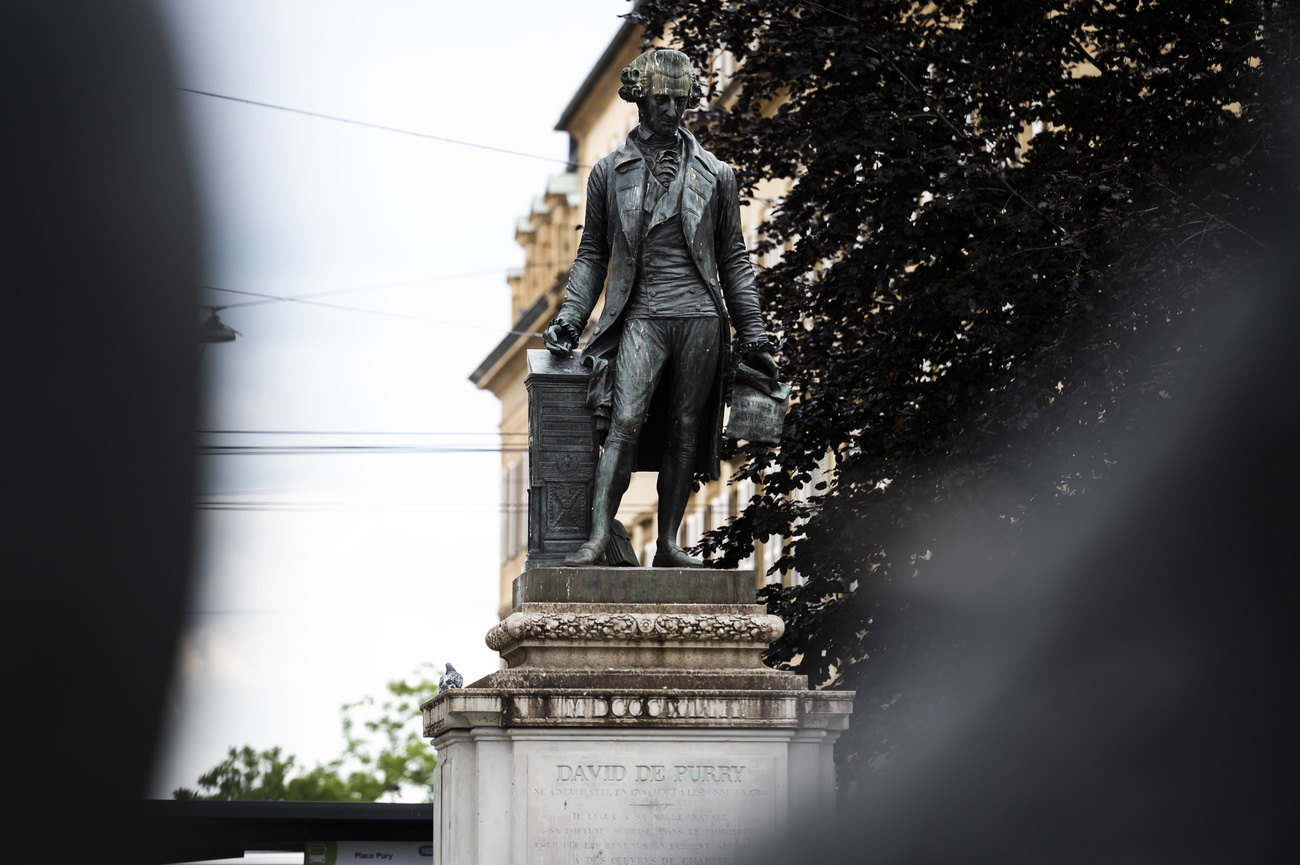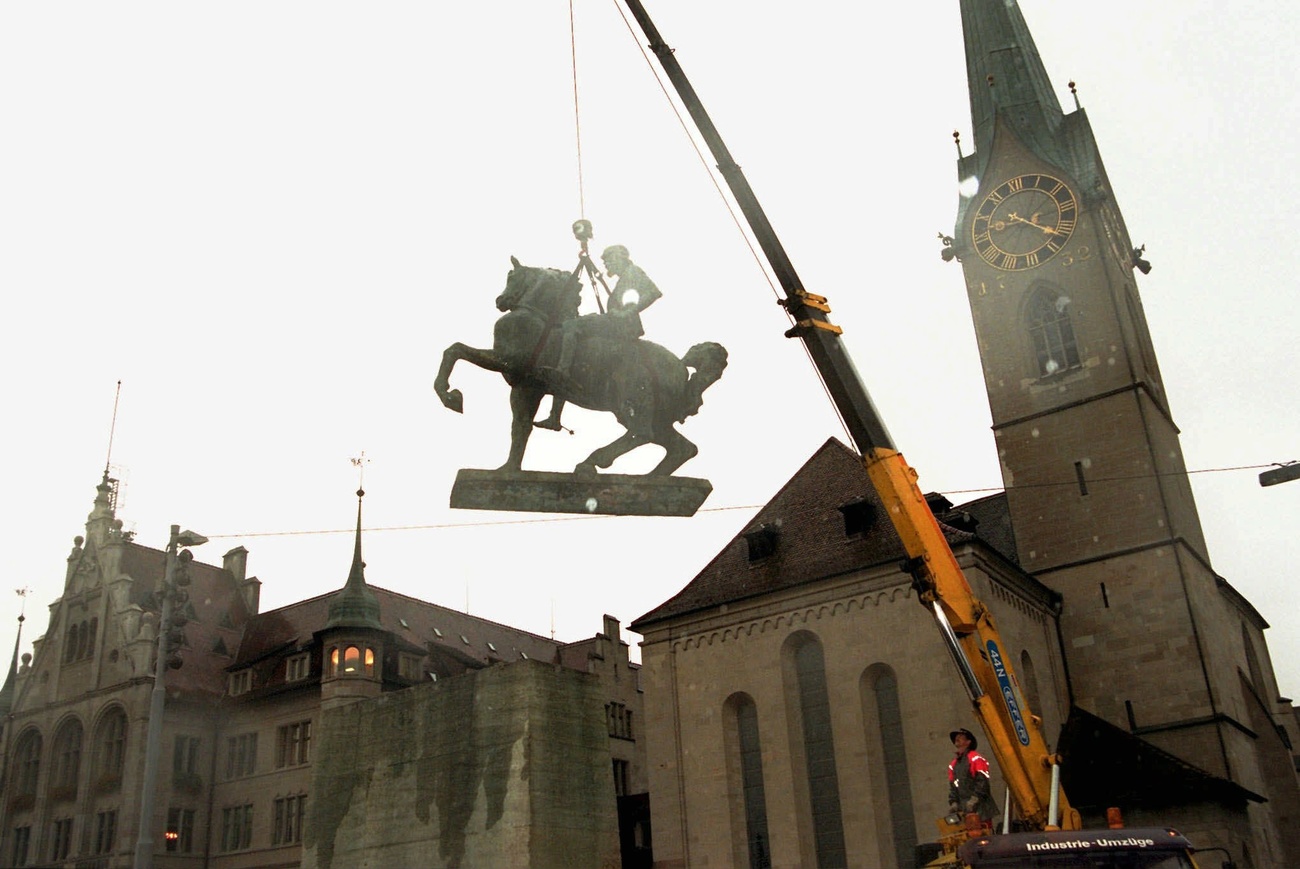
University of Geneva removes controversial building name

The University of Geneva has decided to remove the name of “Carl Vogt”, a 19th-century naturalist accused of holding racist and sexist views, from a university building.
The name will be erased from the university building located on Carl-Vogt boulevard in the centre of the city and replaced with “University of Geneva” (UNIGE), the university confirmed on Thursday. A new name for the building will be chosen following a wide participative consultation.
The move, first revealed by Radio Lac, is due to a “certain number of theories about the hierarchy of races and inferiority of the female sex” that Vogt defended, the university stated.
Carl VogtExternal link (1817-1895) was a German scientist, philosopher and politician who emigrated to Switzerland. He published a number of works on zoology, geology and physiology. He was active in the creation of the University of Geneva, becoming rector (1874-1875) and later a professor of geology and zoology.
“His quest for answers as to the stages of evolution (from ape to man) led him to conclusions that appear at the beginning of the 21st century as hasty and racist,” writesExternal link the Historical Dictionary of Switzerland.
The university rectorate said the theses defended by Carl Vogt were “obviously incompatible with the values of UNIGE”. The future of a Carl Vogt statue outside the university’s Bastions building will also be reviewed. Discussions will be held with the city authorities.

More
Switzerland joins debate about removing controversial memorials
Slave trade, statues and mountain peak
Monuments and statues in public spaces remain a politically charged issue. The Geneva decision follows a study launched by the authorities into contentious local public monuments and statues, and comes in the wake of global anti-racism protests after the death of the US citizen George Floyd in 2020.
Elsewhere in Switzerland, links to the slave trade, statues and even a mountain peak have been under the spotlight. Following political pressure, in the city of Zurich a working group is examining 26 statues, while the historian Georg Kreis is looking at “just under 40 monuments”External link.
In Neuchâtel, the local authorities were forced to react following demands to replace a statue of a well-known 18th-century entrepreneur and benefactor, David de Pury, who is accused of amassing part of his fortune via the exploitation of African slaves.

More
Who decides who is put on a pedestal?

In compliance with the JTI standards
More: SWI swissinfo.ch certified by the Journalism Trust Initiative




























You can find an overview of ongoing debates with our journalists here . Please join us!
If you want to start a conversation about a topic raised in this article or want to report factual errors, email us at english@swissinfo.ch.